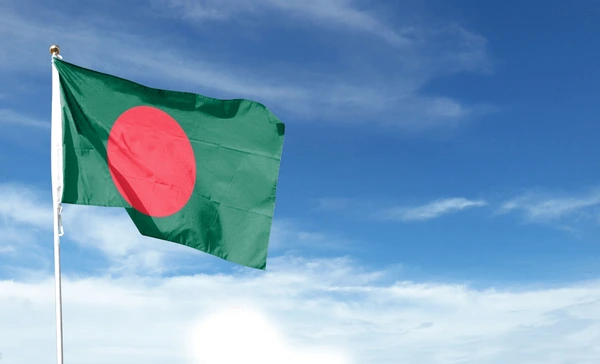In a move sparking significant outcry, Bangladeshi authorities have filed a sedition case against Chinmoy Krishna Brahmachari, spokesperson for the Sanatan Jagaran Mancha, and 19 other Hindu community members for allegedly raising a saffron flag above the national flag in Chattogram. The case, filed on Wednesday night at Kotwali Police Station, includes charges under various sections of the Penal Code and accuses the group of undermining the nation’s sovereignty.
Plaintiff Firoz Khan, who lodged the complaint, named 19 individuals, including Lilraj Das Brahmachari, the head of ISKCON’s Prabartak Sri Krishna Temple, and 15-20 unnamed individuals. Chattogram Metropolitan Police Additional Deputy Commissioner Kazi Md Tarek Aziz confirmed that two individuals, Rajesh Chowdhury and Hriday Das, have already been detained.
The incident allegedly occurred on October 25, during a rally organized by the Bangladesh Sanatan Jagaran Mancha at the Laldighi field in Chattogram. Following the anti-discrimination protests that led to the ousting of the Sheikh Hasina regime, a national flag was mounted at New Market square; however, reports surfaced alleging that a saffron flag—a color symbolizing the Hindu faith and associated with ISKCON—was placed above it during the rally. Images of the alleged incident quickly circulated on social media, fueling a wave of public outrage.
The rally drew a large turnout and included announcements for upcoming district and divisional rallies and a long march to Dhaka, intended to press the government to protect minority rights. The case argues that the act of placing a religious flag above the national symbol was a “seditious” attempt to destabilize the state and challenge its integrity.
The Human Rights Congress for Bangladesh Minorities (HRCBM) has denounced the charges as baseless, asserting that the case is a state-driven agenda to silence those advocating for minority rights. In a strong statement, the HRCBM condemned the charges against Hindu leaders, warning that these oppressive tactics echo patterns of past authoritarian regimes. “This systematic oppression, aimed at forcing minorities into submission, marks a dangerous shift in Bangladesh’s governance,” the HRCBM stated, urging international human rights advocates to speak out against what they see as an assault on minority rights.

